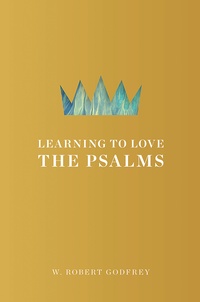The psalm begins with a section dominated by the agonized prayer of David (vv.1-21). David is expressing in the first place his own experience of feeling abandoned by God. Here is the most intense suffering God’s servant can know – not just that enemies surround him (vv.7, 12-13) and that his body is in dreadful pain (vv.14-16), but that he feels that God does not hear him and does not care about his suffering. And this is not just the experience of David. It is the experience of all God’s people in the face of terrible trouble. We wonder how our loving Father can stand idly by when we are in such distress.
And then after pointing out the faith and hope of David expressed in that deep cry, “My God, my God, why hast thou forsaken me? (v.1), showing that David still held on to the truth that God was his God, Godfrey returns to that idea of God’s apparent abandonment:
John Calvin in his commentary concluded that a sense of being forsaken by God, far from being unique to Christ or rare for the believer, is a regular and frequent struggle for believers. He wrote, ‘There is not one of the godly who does not daily experience in himself the same thing. According to the judgment of the flesh, he thinks he is cast off and forsaken by God, while yet he apprehends by faith the grace of God, which is hidden from the eye of sense and reason.’ We must not think that living the Christian life is easy or that we will not daily have to bear the cross.
But then the author takes us to Christ, in whom these words are fulfilled – for our salvation:
This psalm is not only the experience of every believer, but it is also a very remarkable and specific prophecy of the sufferings of Jesus. We see the scene of the crucifixion especially clearly in the words, ‘A company of evil doers encircles me; they have pierced my hands and feet – I can count all my bones – they stare and gloat over me; they divide my garments among them, and for my clothing they cast lots’ (vv.16-18). Here we see that indeed this psalm comes to its fullest realization in Jesus.
Jesus knew this psalm and quoted its first words to identify with us in our suffering since He bore on the cross our agony and suffering. ‘Since therefore the children share in flesh and blood, he himself likewise partook of the same things, that through death he might destroy the one who has the power of death’ (Heb.2:14). Jesus does deliver us by becoming our substitute and the sacrifice for our sins.
 Taken from W. Robert Godfrey’s new book Learning to Love the Psalms (Reformation Trust, 2017). I am now reading through the sections that treat various psalms from each of the five books into which the Psalter is divided. This is drawn from the author’s explanation of Psalm 22 (Book 1).
Taken from W. Robert Godfrey’s new book Learning to Love the Psalms (Reformation Trust, 2017). I am now reading through the sections that treat various psalms from each of the five books into which the Psalter is divided. This is drawn from the author’s explanation of Psalm 22 (Book 1).
For a beautiful arrangement of this Psalm put to music, listen to this video of the Protestant Reformed Psalm Choir (Psalter #47).